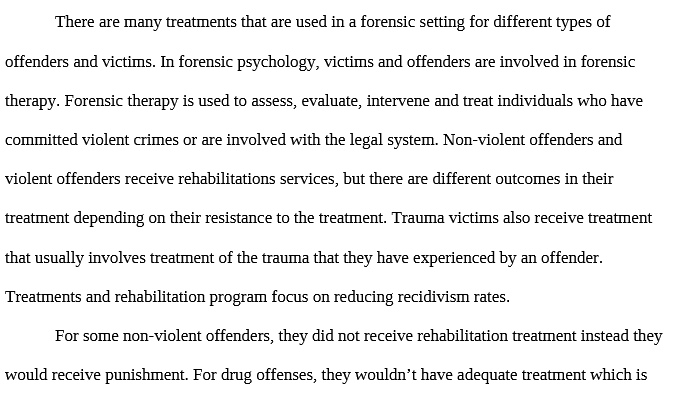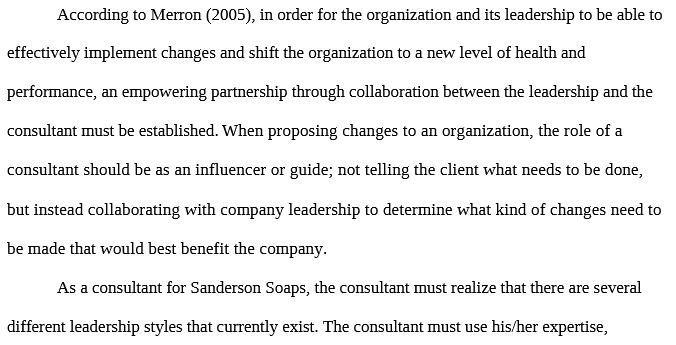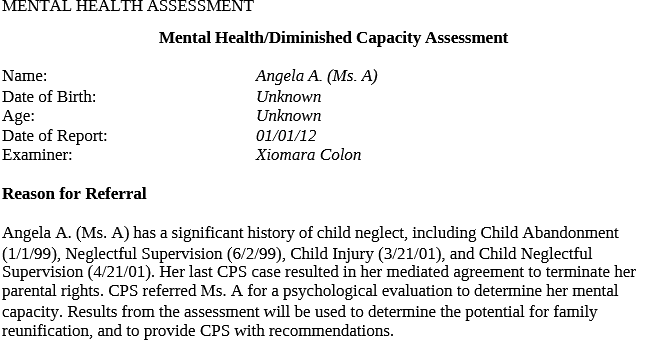PSY 634 PSY634 8-1 Discussion- Expressive vs. Receptive Language Systems.docx- Snhu
$3.99
PSY 634 PSY634 8-1 Discussion- Expressive vs. Receptive Language Systems.docx- Snhu
Discuss the difference between expressive and receptive language systems, focusing on neuroanatomical substrates. What types of language impairments would be seen with damage to the different brain areas? How is acquired damage to those areas functionally different from developmental language delays? When responding to your peers, think about the ways humans rely on language and address additional ways language disruption can affect daily functioning. Expressive language is the ability one has concerning the use of vocabulary to express themselves while communicating (Birkett & Carlson, 2017). Receptive language is the ability one has to understand information based on the understanding of expressive language (Birkett &Carlson, 2017). These are critical systems that contain the importance and knowledge of the areas of the brain where grammar, vocabulary, and comprehension take place.
Description
PSY 634 PSY634 8-1 Discussion- Expressive vs. Receptive Language Systems.docx- Snhu
Discuss the difference between expressive and receptive language systems, focusing on neuroanatomical substrates. What types of language impairments would be seen with damage to the different brain areas? How is acquired damage to those areas functionally different from developmental language delays? When responding to your peers, think about the ways humans rely on language and address additional ways language disruption can affect daily functioning. Expressive language is the ability one has concerning the use of vocabulary to express themselves while communicating (Birkett & Carlson, 2017). Receptive language is the ability one has to understand information based on the understanding of expressive language (Birkett &Carlson, 2017). These are critical systems that contain the importance and knowledge of the areas of the brain where grammar, vocabulary, and comprehension take place. the adolescent reader would become even more difficult with pure alexia. People at any age can develop this inability, but for children, this would be exceptionally hard because there could be a foundation for reading or spelling that had been established to have to remember in order to at least comprehend, write, and orally repeat. For adults, they have a history of having the ability to recall reading and writing while adolescents and children may not have this type of advantage
PSY 634 PSY634 8-1 Discussion- Expressive vs. Receptive Language Systems.docx- Snhu
For our short paper this week, we are asked to select a type of aphasia (or pure alexia, dyslexia, dysgraphia) and describe the underlying functional neuroanatomy and possible causes of damage to that anatomy that would result in the dysfunction. We are asked to discuss what deficits would be expected and what functions would remain intact? We are also asked how the aphasia would affect a child functionally at different levels of development? And lastly, what interventions might be used with a child affected by our selected aphasia? Expressive language refers to the ability to communicate our thoughts and feelings through. Broca’s aphasia is expressive aphasia resulting from damage to Broca’s area, which is located in the left frontal lobe. Those with Broca’s aphasia have difficulty producing language, specifically speech (Carlson & Birkett, 2017). Broca’s aphasia is characterized by slow, laborious, and non-fluent speech. Although they often mispronounce words, the words produced are usually meaningful. These patients typically comprehend words better than they can produce them, and find some words easier to say than others (Carlson & Birkett, 2017). For instance, function words like in or the are difficult, but meaningful content words including verbs, adverbs, nouns, and adjectives, such as heavy, apple, and throw, are most commonly used (Carlson & Birkett, 2017).
PSY 634 PSY634 8-1 Discussion- Expressive vs. Receptive Language Systems.docx- Snhu
- PSY 211 – Lifespan Development (5015 Documents),
- PSY 215 – Abnormal Psychology (4335 Documents),
- PSY 108 – Introduction to Psychology (3759 Documents),
- PSY 223 – Statistics for Psychology Research (2652 Documents),
- PSY 216 – Psychology of Personality (1841 Documents),
- PSY 510 – Research Methods (1748 Documents),
- PSY 520 – Research Methods in Psychology II (1469 Documents),
- PSY 257 – Psychology (1451 Documents),
- PSY 310 – Criminal Psychology (1393 Documents),
- PSY 200 – FOUNDATIONS OF ADDICTIONS (1379 Documents),
Only logged in customers who have purchased this product may leave a review.







Reviews
There are no reviews yet.